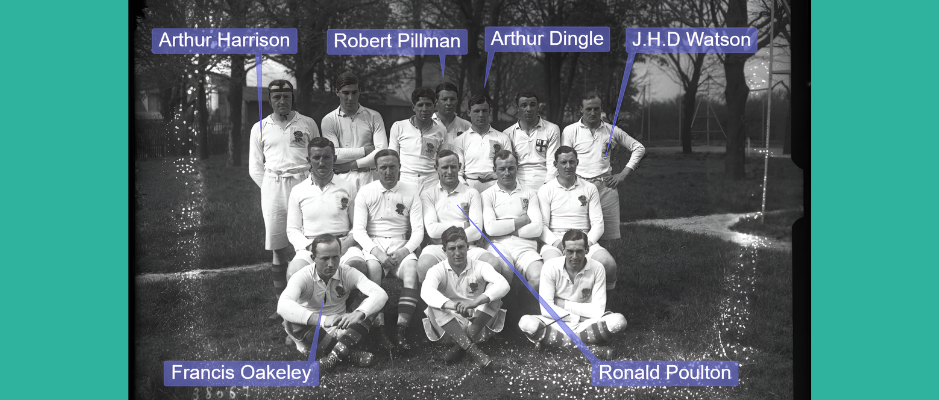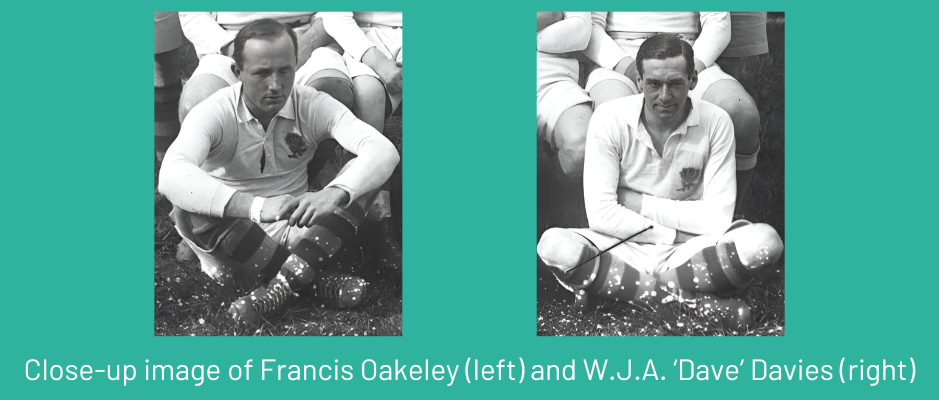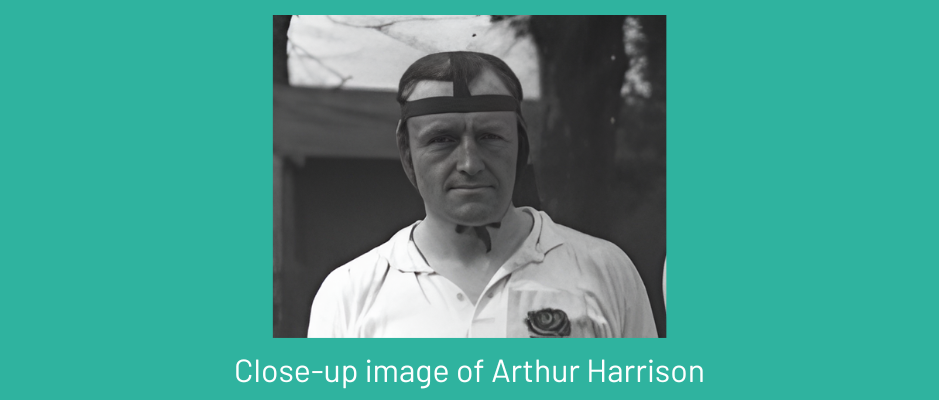Views
The last Five Nations before The Great War - Part Two

The banner image above shows the England team that played France on April 13th 1914, the last Five Nations match before the Great War in which six of its members would die.
One of those six, Ronald Poulton, had rescued his side from defeat against the Welsh, but to rectify the weaknesses that had been exposed the selectors bolstered the side for the matches against Ireland and Scotland with four more players who would also die – Francis Oakeley and Arthur Harrison, and then Arthur Dingle and J.H.D. Watson - as Peter Bloor now recounts in Part Two of our Remembrance series.
February 1914, England 17 Ireland 12: “We’ll have the Service halves please”
The puzzling England versus the Rest trial had, it seemed, answered one question – who should play at half-back. The selectors had decided that the answer was the Leicester pair of George Wood at scrum-half and George Taylor at stand-off, but the Wales match had showed that they were wrong.
Wood and Taylor had proved incapable of playing behind beaten forwards and had taken a physical pounding with Wood, it was damningly reported, “curled up uselessly in front of the Welsh rushes.” Wishing no repeat in either the forwards or at half-back against Ireland the selectors recalled Francis Oakeley, W.J.A. Davies and H.C. “Dreadnought” Harrison and brought in another, unrelated Harrison, Arthur, for his first cap: all were Navy men from the United Services club and all were brought in to counter the famously non-stop, “wild and whirling methods” of the Irish forwards.
Oakeley “proved the good judgement of the selectors”
Oakeley had been dropped after the trial in favour of Wood but he had the sturdy build that had come to be seen as an asset for scrum-halves and, enduring and fearless at the feet of onrushing forwards as he was, he had few superiors behind a beaten pack. With the intention of not needing Oakeley to demonstrate this the selectors also brought in the two Harrisons to stiffen the scrum and to win the ball for him to get smartly away to his stand-off “Dave” Davies, to begin the passing that was intended to move the Irish all over the field and tire them.

“Davies, fielding Oakeley’s passes with almost formal accuracy…”
Their thinking was sound; the scrum was stiffened and their “typically rampageous” opponents held, allowing Francis to get the ball away smartly and accurately to Davies who, playing with a familiar partner, knew exactly how and when to expect it. As intended the brilliant passing movements they instigated did tire the Irish, who duly flagged twice, once in the first half when a move Oakeley had begun with a smart pass went through Ronald Poulton for Alan Roberts to touch down and once in the second, when Davies ran with Poulton-like swerves from the half-way line to score himself. The Irish did gather themselves for a final effort but it was too late and England had won a match that had, following that against Wales, looked distinctly awkward.
March 1914, Scotland 15 England 16: “Dingle does not shape like a first-class wing…”
Perhaps with the maxim “Scottish forwards do not tire” in mind the selectors retained Francis Oakeley and “Dave” Davies - but only one of the Harrisons, “Dreadnought” - for England’s next against Scotland match at Inverleith, Arthur being replaced by John Greenwood.
There were changes in the three-quarters too. J.H.D. Watson, the great success of the England versus the Rest trial, returned to play wing after being forced out of the Ireland game through injury, while Arthur Dingle returned to win his second cap at, it was initially thought, centre. However, Arthur could also play wing and that was where he played, allowing the versatile Watson to move inside to centre, from where he gave a magnificent performance of swerving, jinking running.
Arthur may have been able to play wing but he had not made a good impression there in the trial against the Rest. He was not helped by Ronald Poulton starving him of possession by holding onto the ball too long but even so, the correspondent of the Evening Standard still concluded that although he was “a strong runner and tackles well he has not a safe pair of hands”, to which the man at The Sportsman added that he was “lacking the first essential – pace.”

‘…nor will Dingle do for Test purposes’
His performance against Scotland proved them right – and wrong when Arthur tackled James Huggan too high and was easily handed off by him on his way to scoring Scotland’s second try. He was indeed slow – as the Manchester Guardian kindly put it, “he suffered by comparison with the speedier wings” - and if he were a strong runner then Huggan stopped him going very far and showing it. Nor was Arthur’s handling sure - when he did get forward in the opening stages he missed a pass from Ronald Poulton, admittedly one he may not have been expecting, with the line undefended just 10 yards away.
Arthur did not have the trickery to compensate for any of this - trickery such as that Poulton had shown against Wales, “Dave” Davies against Ireland and Watson in that same Scotland match – and had not justified his selection, but he nevertheless kept his place in the side when the now-Triple Crown winners visited Paris.
J.H.D. Watson, the surgeon at centre three-quarter
Our series will finish with that match against France but next, in Part Three, we will look further at J.H.D. Watson and at the reasons why his selection against Scotland was controversial and his performance so exasperating to some.
References
The quotes and other information in this article are taken from The Times, the Manchester Guardian, the Daily News, the Daily Chronicle, the Sporting Life and local newspapers 1912-1914.
Images: Photographs Agence Rol, Source gallica.bnf.fr/Bibliothèque nationale de France.
Comments: 0 (Add)
In this section
Volunteers
We’re always on the lookout for volunteers to help run our clubs all across England, Scotland and Wales – find out more here.
Find a club
Want to know where your nearest Sporting Memories club is? View our Club Finder page here.